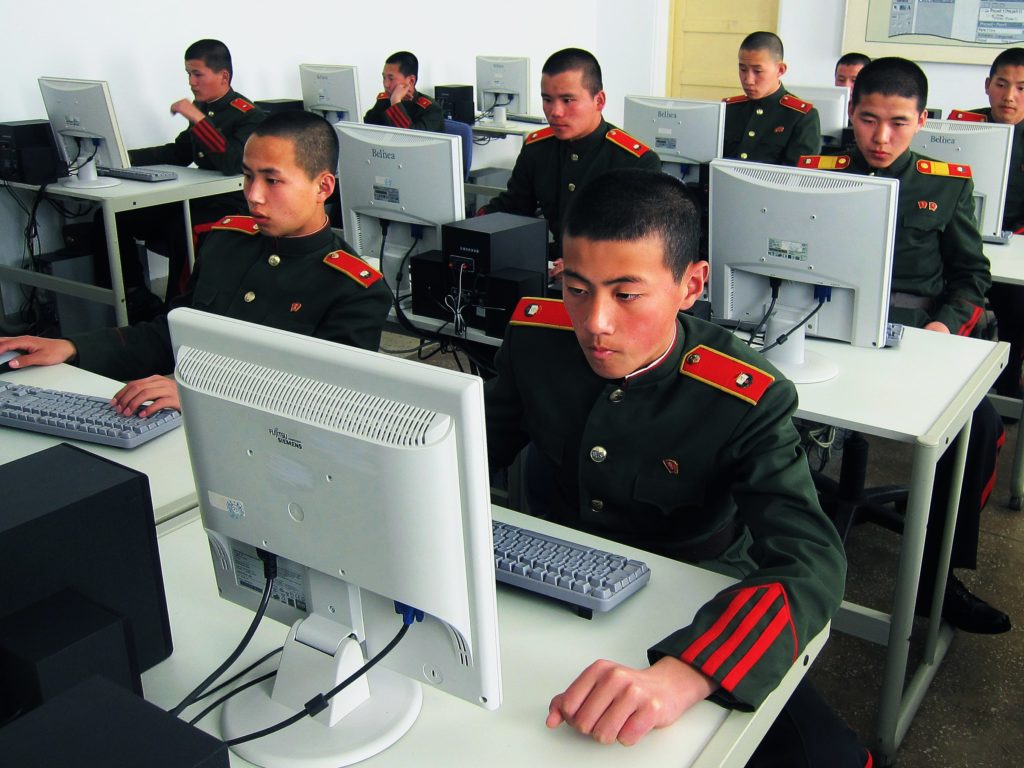North Korean hackers could start stealing business secrets
As North Korea tries to rev up its economy, it may shift its hacking efforts from financial thievery to stealing intellectual property, China-style. That’s according to a contested new theory from cyber security firm CrowdStrike.
Why it matters: North Korea is already one of the “big four” hacking threats — along with China, Russia and Iran — but it currently focuses on cash theft to fill its sanctions-drained coffers. Though experts are mixed on the likelihood Pyongyang’s hackers would switch to the model China used to build its domestic industries, most seem to think it’s a threat worth keeping an eye on.Show less

The theory works like this:
- North Korea’s long-held strategy, known as the byungjin line, had emphasized parallel development of nuclear and economic might. Now, the only goal is the latter — the Kim regime declared victory on the former last April.
- North Korea’s chief resource right now, beyond its heavily sanctioned mineral deposits, is a giant corps of state-sanctioned cyber criminals.
- “North Korea will want to leapfrog its way into the global economy,” said Adam Meyers, vice president of intelligence at CrowdStrike. “Vietnam is frequently mentioned as the model North Korea would follow to build a sustainable economy. But China would be on the table, too.”
While CrowdStrike isn’t seeing any current intellectual property theft, Meyers suggested a shift (if one is coming) could happen in the next two years.
- Depending on the continuation of sanctions, there aren’t too many ways to spur economic growth in North Korea, noted Meyers — there are no viable sources of external investment.
Yes, but: North Korea lacks the infrastructure for the kinds of high-tech manufacturing that China succeeded with. Despite the finest 1970s-era Soviet manufacturing technology, North Korea doesn’t have the equipment to mass-produce cheap, modern products, even if it stole the know-how to make them.
- Also, “they’re making a fair amount of money through hard currency, and they’d have to reassign those resources to do this,” noted a skeptical Adam Segal, director of the digital and cyberspace policy program at the Council on Foreign Relations.
- Segal views North Korean IP theft as a technically possible but remote chance.
What they’re saying: Other experts thought the possibility was, at least, something to monitor.
- Robert Manning, an Atlantic Council resident senior fellow with previous stints at the Office of the Director of National Intelligence and State Department, said he wouldn’t be surprised by the development. But he cautioned that any intellectual property theft would probably skew toward goods that are easy to fabricate.
- That would include products like pharmaceuticals and pirated movies rather than the consumer, telecommunications and computer memory chip products China appropriated. Of course, North Korea might steal more complex secrets and sell them to other nations, Manning said.
- Jenny Town, an analyst for the Stimson Center and managing editor of its North Korea-focused 38 North blog, said the shift CrowdStrike is predicting is something to watch out for.
- “It has been dangerous in the past to underestimate North Korea on these things,” Town said.
The big picture: With a summit between President Trump and North Korean leader Kim Jong-un slated for next week, the isolated regime’s international situation is more in flux than it has been for decades.
source: www.axios.com

![[FLOCKER] - Ransomware Victim: G*********************y[.]org 2 image](https://www.redpacketsecurity.com/wp-content/uploads/2024/09/image-300x300.png)

